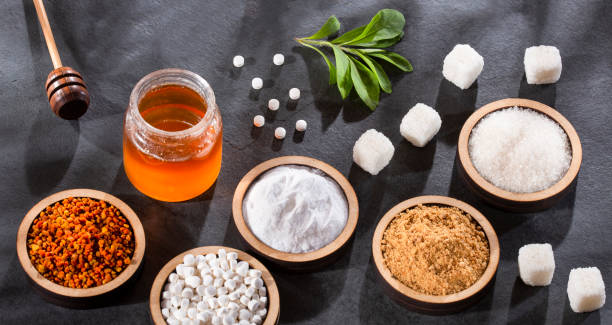“We’re not advising companies to withdraw products, nor are we advising consumers to stop consuming altogether,” said Francesco Branca, the World Health Organization’s nutrition and food safety director.
“We’re just advising for a bit of moderation,” the official said at a press conference which presented the findings of two studies of the available evidence regarding aspartame.
Its International Agency for Research on Cancer (IARC) performed its first ever evaluation of the carcinogenicity of aspartame during an event held in Lyon, France, from 6 to 13 June. “The working group classified aspartame as possibly carcinogenic to humans,” the WHO declared.
It was classified in 2B. 2B based on little evidence available, focusing on the hepatocellular carcinoma, a form of liver cancer. There was also a limited amount of evidence of cancer in animals that were subjected to experimental treatment.
It is believed that the category of Group 2B category also has extract of aloe vera, as well as the caffeic acid that is present in coffee and tea according to Paul Pharoah, a professor of cancer epidemiology at Cedars-Sinai Medical Center in Los Angeles. “The general public should not be worried about the risk of cancer associated with a chemical classed as Group 2B,” the professor said.
Mary Schubauer-Berigan, the IARC’s director of research, claimed that the scant evidence of the hepatocellular cancer was based on three studies carried out within the United States and across 10 European countries. “These are the only epidemiological studies that examined liver cancer,” she told reporters.
Branca said: “We have, in a sense, raised a flag here, indicating that we need to clarify much more the situation,” however, it is not “something which we can dismiss”.
9 to 14 cans per day to meet the acceptable intake
Another organization, JECFA – the Joint Expert Committee on Food Additives created by the WHO together with the UN agency, the Food and Agriculture Organization – took place in Geneva between 27 June and 6 July to review the dangers associated with aspartame.
They concluded that the information they analyzed showed no need to alter the accepted daily intake (ADI) set in 1981, which ranges from between zero and 40 milligrammes aspartame for every kilogram of body weight.
A canned sugar-free soft drinks typically having 200 to 300 mg aspartame, a sweetener, an adult who weighs 70kg will therefore require more than nine or 14 cans a day to surpass the ADI in the event of no other aspartame intakes from other sources.
“The problem is for high consumers,” Branca said. Branca. “Somebody who drinks a soda every once in a while… shouldn’t have a concern.”
Sweetener found in gum, sodas and cereals.
Aspartame is a synthetic chemical sweetener used extensively in many food and drink products since the 1980s.
It can be present in chewing gum, diet drinks gelatin, ice cream dairy products, such as yogurt, breakfast cereals as well as toothpaste, cough drops, and chewable vitamins.
The International Sweeteners Association said that the Group 2B classification places aspartame in the same class as kimchi and other pickled vegetables.
“JECFA has once again reaffirmed aspartame’s safety after conducting a thorough, comprehensive and scientifically rigorous review,” said ISA head Frances Hunt-Wood.
However, to Camille Dorioz, campaign manager for the consumer group Foodwatch The news on Friday left the impression of a “bitter taste”. “A possibly carcinogenic sweetener has no place in our food and drink,” said the Foodwatch campaign manager. declared.
WHO advises: Drink water
In May in May, the WHO stated that artificial sweeteners that are used to substitute sugar in a wide range of foods, do not aid in weight loss and could have serious adverse health effects.
The UN health agency issued guidelines that advised against using sweeteners made of sugar that aren’t sugar.
Branca was asked what consumers can do following the news on Friday, and how to decide between soft drinks with sugar added, or that has added sweeteners.
“There should be a third option considered, which is to drink water instead – and to limit the consumption of sweetened products altogether,” said he. “There are alternatives that do not contain either free sugars or sweeteners – and those should be the products that should be preferred by consumers.”
